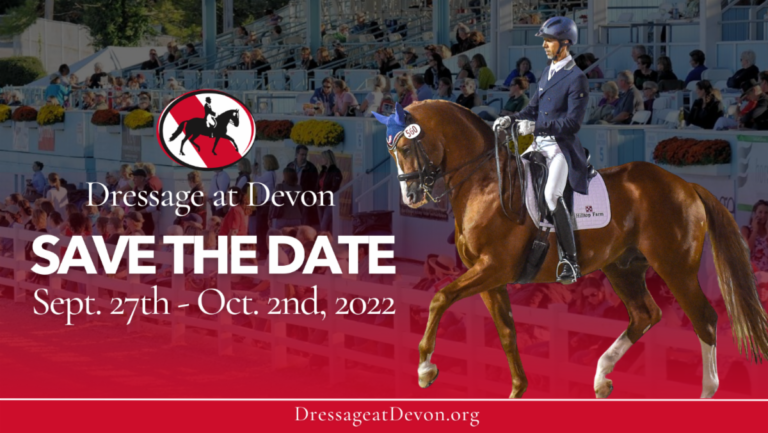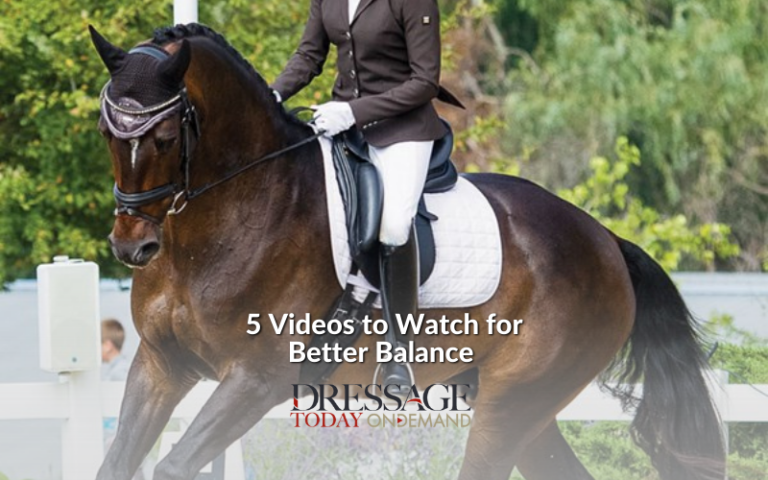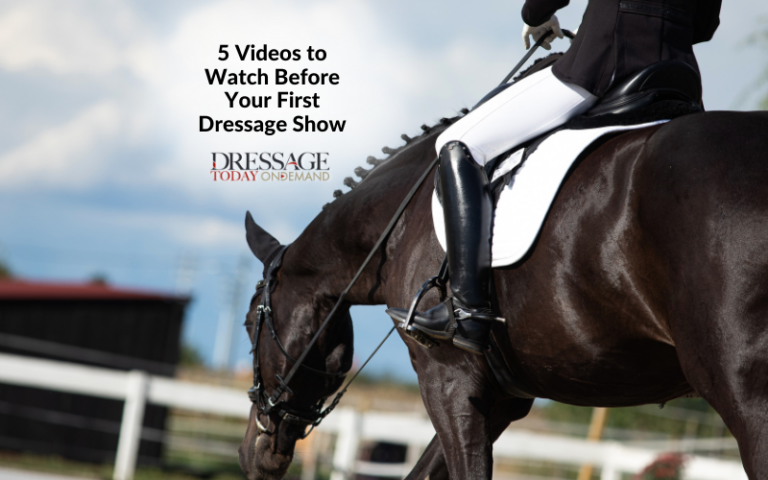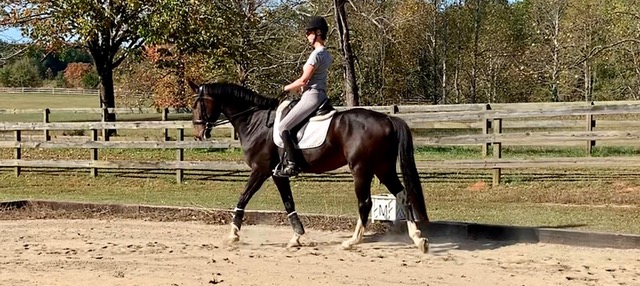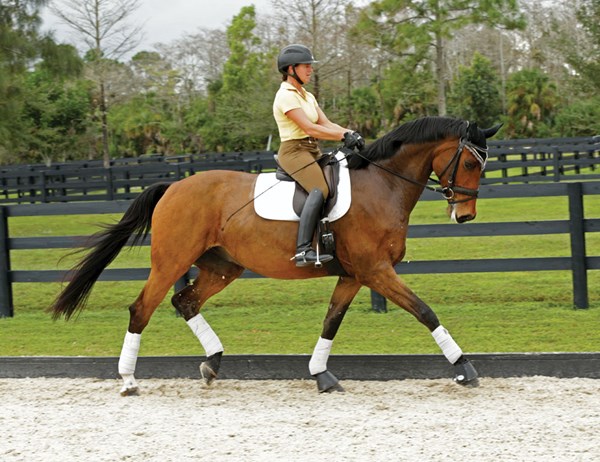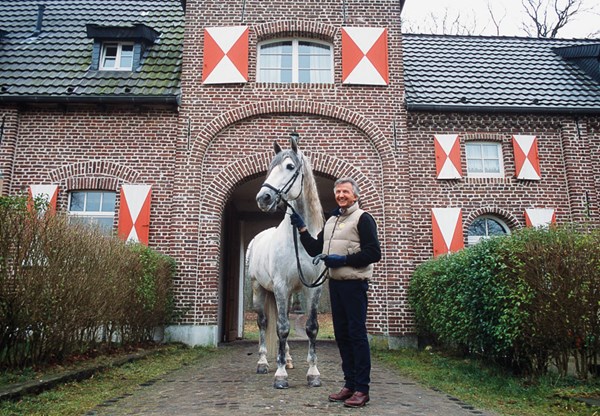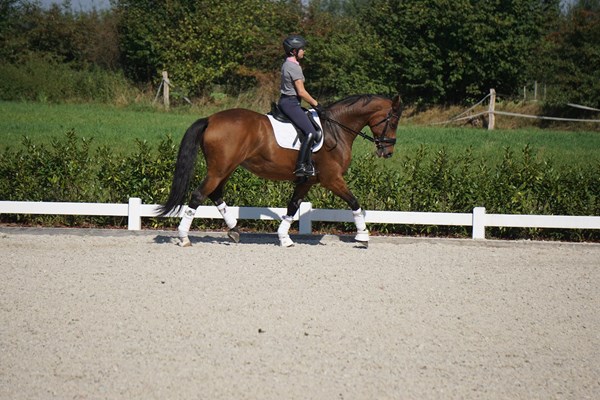In my years of horse ownership, I’ve seen my horses through various health issues, including sarcoid treatments, choke, an eye removal due to painful uveitis, seasonal allergies and joint injections for arthritis. If you own horses, you inevitably deal with health-related issues, which is why we decided to bring you an issue devoted to sport-horse health. This month’s articles offer tips from expertswho have experience in dealing with different health issues that can affect competitive dressage horses. We also look at ways to train our horses so that we promote soundness and prevent injuries from happening in the first place.
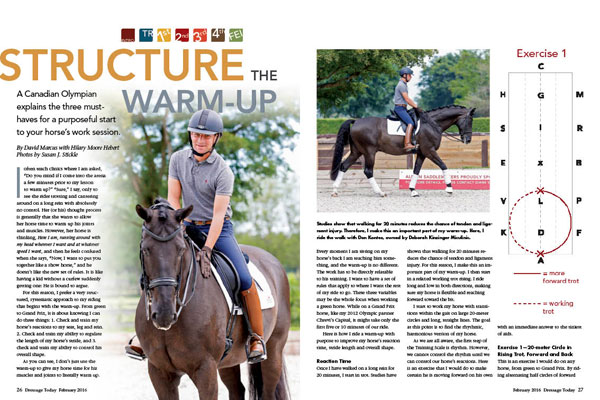
Our cover story comes from Canadian Olympian David Marcus, who discusses the importance of a structured warm-up. “I prefer a very structured, systematic approach to my riding that begins with the warm-up,” says Marcus. He makes the walk an important part of this time, saying that studies have shown that walking for 20 minutes reduces the chance of tendon and ligament injury in the horse. Read his story on p. 26.
After a proper warm-up, we need to continue to focus on the quality of our horse’s gaits. In “Optimizing Your Horse’s Soundness from the Saddle” (p. 36), Dressage Today Technical Editor Beth Baumert tells us that the best thing we can do for our horse’s health and longevity is to ride him in balance so he is free to move forward in rhythm, with suppleness, reaching for the bit—all without tension. “Help your horse to coordinate himself and your reward will be a healthy, sound, happy horse that has many useful years,” says Baumert.
Keeping your horse sound may require work out of the saddle, too. On p. 42 we bring you an excerpt from Jim Masterson’s latest book, The Dressage Horse Optimized, in which he explains how, through gentle and light manipulation of targeted release points and studied observation of the horse’s responses, we can open doors to improved health and performance while enhancing communication along the way. And don’t miss the Masterson Method pull-out chart between pages 48 and 49.
While preventing injury is certainly the goal, things can go wrong. In “Returning to the Ring,” on p. 49, we hear from three riders, including dressage star Laura Graves, who has had first-hand experience bringing her horse, Verdades, back to competition after he broke his jaw in 2011. After months of rehab and patience on Graves’ part, the pair went on to perform at the elite ranks of the sport.
There’s much more in this issue, including an interesting piece on how correct dentistry can positively affect throughness (p. 60). If you have a moment, please let me know how this issue might have helped you and your partner.
Until next time…


